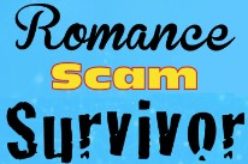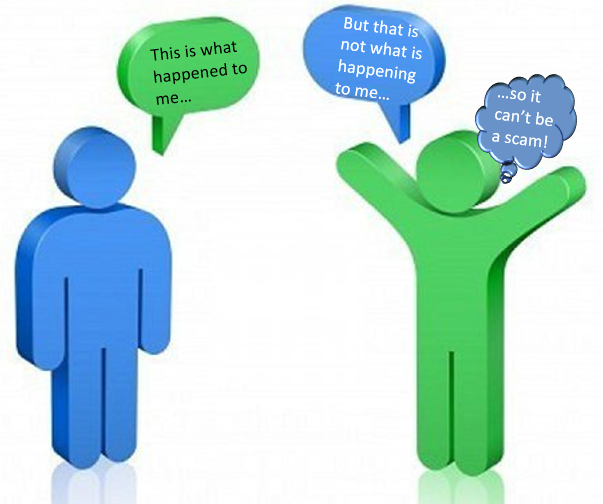 Cassandra Cross, The QUT cyber fraud and scam researcher, claims putting out warnings about all the different types and plots of scams does not effectively deliver warnings that help people avoid scams, especially romance scams. The focus needs to change so effective, consistent and repeatable warnings are given, and the ongoing losses are stopped. She has been in the news again winning awards for her article about this, as well as being quoted in the press, doing a TED talk, attending local and overseas conferences, and having her (co-authored) book published.
Cassandra Cross, The QUT cyber fraud and scam researcher, claims putting out warnings about all the different types and plots of scams does not effectively deliver warnings that help people avoid scams, especially romance scams. The focus needs to change so effective, consistent and repeatable warnings are given, and the ongoing losses are stopped. She has been in the news again winning awards for her article about this, as well as being quoted in the press, doing a TED talk, attending local and overseas conferences, and having her (co-authored) book published.
Highly Commended Award celebrates unique insights into what prevention strategies work.
The Emerald Literati Awards celebrate and reward the outstanding contributions of authors and reviewers to scholarly research. Her article with fellow (Toronto Police Service) author Michael Kelly The Problems of “white noise”: examining current prevention approaches to online fraud received the Highly Commended award for the Journal of Financial Crime.
 The problem, the article argues, is that the focus is too much on all the different possible approaches and stories (plot lines) that can be used by fraudsters. There are so many of these that it becomes “white noise” and a distraction rather than providing real warnings. Supporting arguments are two-fold.
The problem, the article argues, is that the focus is too much on all the different possible approaches and stories (plot lines) that can be used by fraudsters. There are so many of these that it becomes “white noise” and a distraction rather than providing real warnings. Supporting arguments are two-fold.
Firstly, the fraudsters are not linear in their activities, and will chop and change their tactics with an individual victim to ensure they maximise their opportunities to get money. They do not follow a set ‘story’ and may combine different scam strategies.
Secondly, victims caught in a scam may have previously heard or read stories about scams, or seen scam some of the many warnings, but because these stories are different from their own experience, they reject the idea that they could be being scammed. They think it does not apply to them. [This was my own experience!]
The media puts a personal face on scams by focusing on what happened to a victim, assuming scams are similar and that this will have salutary and warning impact. These stories, says Dr. Cross “are very valuable and I think that victims who put themselves out there are to be commended.” However, they add to the “white noise”. What is needed more is warning messages that cut across all fraud/scam and plot lines. Often a warning opportunity is lost when so many different scam stories are publicised. Any attempt to give characteristics of all scam plots and stories is too lengthy, can be confusing, and does not facilitate a concise and repeatable ‘warning’ in the message.
Practically, “This paper provides the impetus to evaluate the effectiveness of current prevention messages. It points to a simplification of existing prevention messages to focus more importantly on the transfer of money and the protection of personal information.”[My emphasis to show where alternative messaging should focus]
As someone who is often approached by various media to tell her story I have always felt that the often shortened media grabs do not do justice to the intent of the story, and this paper and research support this. The sensational and shocking is emphasised over and above the clear warning message. As well as the focus on not to send money and protect personal data, I would personally add to be wary of development of seemingly legitimate relationships with people you cannot meet face to face, for whatever reason.
The article is well worth a read in its own right.
Brisbane Times Article
Dr Cross also commented recently that Cyber fraud is not only under-reported but evolving faster than authorities can keep up. Police need to be able to be more investigative even with perpetrators overseas, and not rely on specialist cyber units to do this. See the full article in the Brisbane Times article by Amy Mitchell-Whittington on 1 July 17.
TED Talk
At last we see Dr Cross herself in action in a 10 minute TED talk – Online Fraud: It could Never happen to me? at TEDXQUT. It questions who around us has been scammed that we don’t even know about, as many people keep quiet about what has happened to them. It recommends opening up the conversations with friends, family and community before it happens, and having sympathy for victims.
The Book: Cyber Frauds, scams and their victims
Dr Cross has been travelling recently on the back of the publication of her book, with co-author Professor Mark Button from the University of Portsmouth, UK., Cyber Frauds, scams and their victims, published by Routledge. To quote the synopsis:
Though a 229 page and dense book, for anyone interested in an international and experientially based understanding of Cyber Frauds this book is exemplary. Paperback, hardback and e-book versions are all available to suit your preferred reading style, and a detailed table of content as well as an index are included. No doubt I will be quoting from this in future blogs as I read through it.
Ah yes, I mentioned travel – to a number of conferences in England, Europe, and even the Gold Coast and Cairns. I’ll leave that to Cassandra – follow her on Twitter at @DrCassCross.


